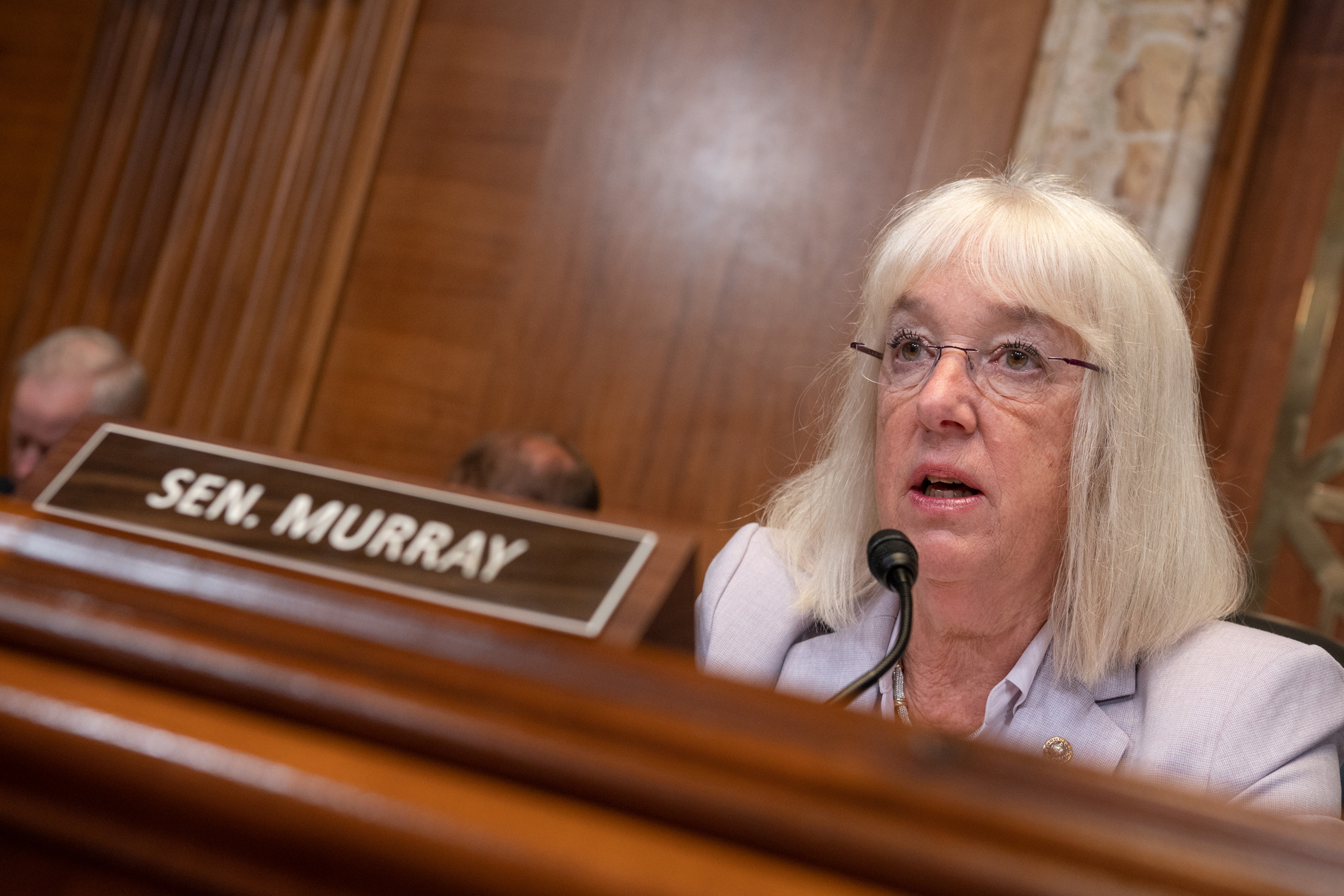(Washington, D.C.) – Today, during a Senate Veterans’ Affairs Committee hearing, U.S. Senator Patty Murray (D-WA), a senior member of the Senate Veterans’ Affairs Committee, joined her Senate colleagues in discussing how the Department of Veterans Affairs (VA) can help support veterans and their families across the country with leaders from the Disabled American Veterans (DAV).
During the hearing, Senator Murray highlighted VA’s critical role in taking care of women veterans and veterans with disabilities, and probed hearing witnesses on what VA can do to make sure veterans can get the high quality care and benefits they are owed for their service.
“I want to talk about the millions of children who are living with a disabled veteran and how we make sure we’re taking care of them as well. Senator Boozman and I are introducing the Helping Heroes Act, to help support the families of disabled veterans, including children who take on caregiving roles,” said Senator Murray during her questioning. “I really believe we have a serious obligation to support our veterans when they come home—and that includes supporting the children or grandchildren of these veterans, who are helping care for their families.”
The hearing included testimony from Joseph Parsetich, DAV National Commander, who was joined by J. Marc Burgess, National Adjutant; Barry Jesinoski, Executive Director of DAV’s National Headquarters; Edward R. Reese, Jr., Executive Director of DAV’s Washington Headquarters; Jim Marszalek, DAV National Service Director; Joy Ilem, DAV National Legislative Director; John Kleindienst, DAV National Director of Voluntary Service; Ryan Burgos, DAV National Employment Director; and Darlene Spence, DAV Auxiliary National Commander.
During her questioning, Senator Murray highlighted her Helping Heroes Act—legislation to support the families of disabled veterans, including children who take on caregiving roles—and discussed what more VA can do to support these families.
Murray made clear she plans to reintroduce her Helping Heroes Act very soon. Her legislation would help meet the unmet needs of veteran families by:
- Requiring a full-time Family Coordinator at each VA medical center to assess the needs of veteran families in their catchment area and refer them to available local, state, and federal resources;
- Establishing a Family Support Program to provide supportive services to eligible family members of disabled veterans;
- Ensuring transition assistance curriculum includes information on services for children in veteran families adjusting from Active Duty to veteran status;
- And requiring VA to collect data on the experiences of disabled veteran families to better identify and understand their needs.
As the daughter of a World War II veteran and Purple Heart recipient, Senator Murray has consistently championed federal action to ensure veterans receive the high-quality VA care and benefits they have earned. Last year, she secured $135.2 billion in non-defense discretionary funding for the VA and related agencies, as well as $168.6 billion in mandatory funding as part of the Fiscal Year 2023 omnibus bill to support veterans and military families. Notably, included in the end of year funding package was Senator Murray’s Planning for Aging Veterans Act of 2021, which ensures that VA will pay for the medications of catastrophically disabled veterans who reside in state veterans homes and on whose behalf VA is paying a per diem for nursing home or domiciliary care. The package also includes $840.5 million Senator Murray secured for gender specific women’s health care, and to continue upgrading medical facilities to meet the growing needs of women veterans.
Last week, Senator Murray held a roundtable with Bellingham veterans, providers, and advocates about the early implementation of the PACT Act, legislation to expand the toxic-exposure coverage for post-9/11 veterans and create a framework for coverage going forward.
###


